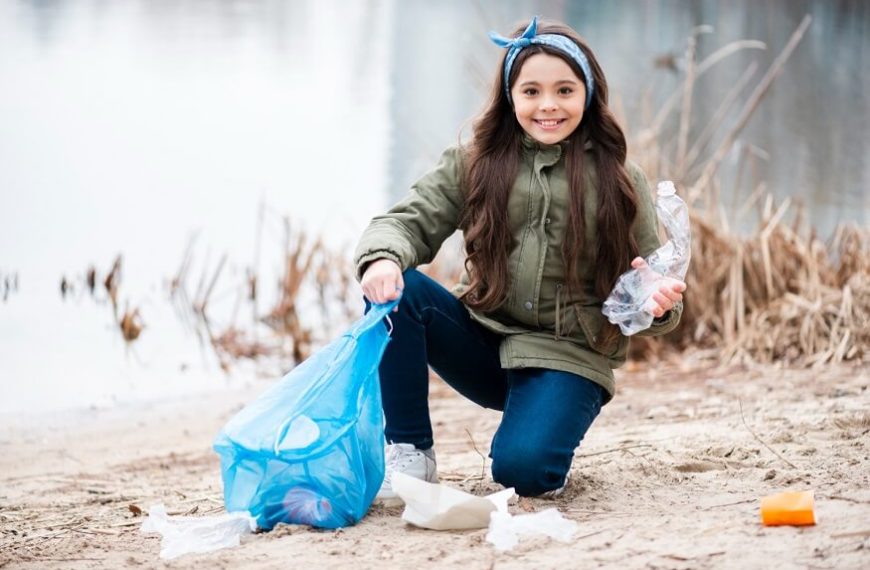The essence of the very core of life on Earth is found in a region that covers more than 70 % of our planet: our oceans. These mysterious oceans are not just vast quantities of water but also active ecosystems that are home to a staggering variety of marine species. From sustaining entire populations to influencing global climate patterns, the oceans play an irreplaceable role in the intricate web of life. However, this critical balance is under threat as pollution, overfishing, and the relentless impacts of climate change cast ominous shadows over these immense aquatic realms. In the quest to preserve the vitality of our oceans, the imperative is clear: it is time to inspire and empower the upcoming generation to become the stewards our oceans desperately need.
Providing The Foundation of Responsibility Through Education
Understanding the complex issues confronting our oceans is the first and foremost step in cultivating a sense of responsibility. Children can immerse themselves in activities that educate them about marine ecosystems, the detrimental effects of pollution, and the critical importance of biodiversity. Engaging with literature, watching documentaries, and participating in educational programs can provide valuable insights. Moreover, the act of sharing this newfound knowledge with peers, family, and classmates becomes a powerful tool in raising awareness about the urgent need for ocean conservation.
Reduction of Plastic Usage
One of the most pressing issues plaguing our oceans is plastic pollution. Children can make a significant impact by consciously reducing their plastic usage. Simple adjustments to daily routines, such as opting for reusable water bottles, lunch containers, and bags, can drastically curtail the generation of plastic waste. Moreover, participating in or organizing beach cleanup events allows children to witness the direct impact of their actions in removing plastic debris from coastal areas.
Active Participation in Conservation Programs
Countless organizations and community groups organize conservation programs and initiatives dedicated to safeguarding marine environments. Children can actively join local beach cleanup events, tree-planting activities, or educational workshops. These hands-on experiences not only contribute to the preservation of the oceans but also instill a deep sense of connection to the environment.
Water Conservation at Home
The health of our oceans is closely related to the preservation of freshwater supplies. Youngsters may play a part by implementing basic water-saving practices at home, such as shutting off the tap when brushing their teeth, having shorter showers, and quickly repairing any leaks. By conserving freshwater, children indirectly reduce the need for energy-intensive desalination processes, which can have adverse effects on marine ecosystems.
Advocacy for Sustainable Seafood Practices
Overfishing remains a critical threat to ocean health. Children can play a crucial role in promoting sustainable seafood practices by questioning the origins of their seafood and opting for certified options, such as those endorsed by the Marine Stewardship Council (MSC). Additionally, families can explore alternative protein sources, thereby decreasing the demand for overexploited fish species.
A Creative Call to Action Through Ocean-Friendly Art and Crafts
Art serves as a powerful medium for raising awareness. Children can express their love for the oceans and advocate for conservation through creative projects. Drawing, painting, and crafting can be utilized to depict marine life, showcase the beauty of coral reefs, and emphasize the importance of a clean ocean. Displaying these creations in schools or community centres not only showcases artistic talent but also inspires others to join the cause.
Coastal Vegetation Planting
Mangroves, seagrass beds, and salt marshes are examples of coastal vegetation that is essential to preserving the delicate balance of marine ecosystems. Youngsters may actively take part in the repair and preservation of these important coastal habitats by planting trees during activities hosted by neighbourhood conservation organisations.
Environmental Events at School
Schools provide excellent platforms for fostering environmental awareness. Youngsters can work with peers and teachers to plan activities like environmental fairs, Earth Day celebrations, and guest talks by environmentalists or marine biologists. Students gain knowledge from these activities, but they also foster a feeling of group environmental responsibility.
Creating Young Guardians of Data by Nurturing Citizen Scientists
Engaging in citizen science projects offers children the opportunity to contribute valuable data to scientific research. Numerous marine-focused initiatives enable kids to participate in tracking marine debris, monitoring water quality, or recording observations of marine life. These projects not only contribute to scientific knowledge but also empower children to actively participate in conservation efforts.
Responsible Tourism
For families enjoying coastal vacations, promoting responsible tourism is crucial. Encourage children and their families to choose eco-friendly accommodations, respect local wildlife, and participate in organized eco-tours that prioritize environmental conservation. Teaching children about the importance of leaving no trace and respecting natural habitats instils a sense of responsibility for the well-being of coastal areas.
Monitoring and Reporting Pollution
Encourage children to be vigilant observers of their surroundings. If they notice instances of pollution, such as oil spills, plastic debris, or other contaminants in water bodies, they can report these incidents to local authorities or environmental organizations. Being proactive in monitoring and reporting pollution contributes to swift response and intervention, preventing further harm to marine environments.
Cultivating Future Marine Stewards by Exploring Ocean Careers
Inspire children to consider careers related to marine science, conservation, and advocacy. Many organizations and institutions offer educational programs, workshops, and internships that provide hands-on experiences in marine biology, oceanography, and environmental conservation. Fostering an early interest in such careers nurtures a generation of professionals dedicated to safeguarding our oceans.
Embracing a Sustainable Lifestyle
Beyond specific actions, instill in children the value of an overall sustainable lifestyle. This includes being mindful of energy consumption, reducing carbon footprints, and making environmentally conscious choices in all aspects of life. By adopting a holistic approach to sustainability, children contribute to a broader movement that addresses the interconnected challenges facing our planet, including the well-being of our oceans.
As we navigate the challenges of the 21st century, the role of our youngest custodians in preserving the oceans becomes increasingly pivotal. Through education, advocacy, and hands-on initiatives, children are not merely witnesses to the unfolding narrative of environmental conservation; they are authors of change. With every beach cleaned, plastic reduced, and voices raised, these young stewards contribute to a collective story of hope and resilience for our oceans. The waves of their actions ripple far beyond childhood, shaping a sustainable legacy that echoes through generations to come. Together, we embark on a journey toward a future where the oceans thrive, reflecting the commitment and dedication of the very children who dared to dream of a better world for our blue planet.
For more such interesting blogs, Visit EuroKids
















